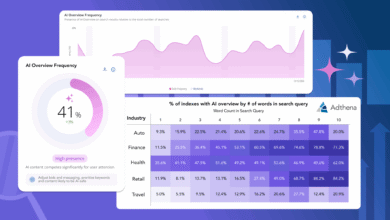Quantum Computing Is Reshaping Cybersecurity Now

▼ Summary
– The Cyber Threat Alliance warns that quantum risk is already a present threat, urging companies to act now rather than delay preparations.
– Organizations must adopt cryptographic agility to adapt encryption methods as quantum threats evolve, despite compliance challenges in regulated sectors.
– Modular architectures are recommended to enable easier updates to cryptographic algorithms without major system disruptions.
– Quantum Key Distribution (QKD) has theoretical benefits but is currently impractical for widespread use due to scalability and cost limitations.
– Post-quantum cryptography (PQC) and hybrid schemes are more practical solutions, with pilot deployments and cryptographic audits being key first steps.
The cybersecurity landscape is undergoing a seismic shift as quantum computing advances threaten to dismantle traditional encryption methods. Organizations can no longer afford to view this as a distant concern, experts warn that proactive measures must begin immediately to safeguard sensitive data against emerging quantum threats.
A recent analysis highlights the urgent need for cryptographic agility, emphasizing that rigid security frameworks could leave businesses vulnerable. Unlike static encryption standards, agile systems allow for seamless transitions between algorithms as threats evolve. This flexibility is particularly crucial for industries handling long-term sensitive data, such as finance and healthcare, where outdated protections could have catastrophic consequences.
Compliance and adaptability don’t have to be mutually exclusive. The key lies in integrating modular architectures that support cryptographic updates without overhauling entire systems. By treating agility as a strategic priority, organizations can maintain regulatory adherence while staying ahead of quantum-enabled attacks.
One alarming trend exacerbating the urgency is “Harvest Now, Decrypt Later”, a tactic where adversaries steal encrypted data today, banking on future quantum breakthroughs to crack it. This puts intellectual property, medical records, and government secrets at immediate risk, making preemptive upgrades to post-quantum cryptography (PQC) essential.
While Quantum Key Distribution (QKD) has garnered attention for its theoretical security benefits, practical limitations hinder widespread adoption. High costs, scalability issues, and integration challenges relegate QKD to niche applications rather than a universal solution. Instead, experts advocate for hybrid cryptographic approaches, blending classical and quantum-resistant algorithms to bridge the gap without disrupting existing infrastructure.
The path forward involves concrete steps: piloting PQC implementations, maintaining detailed inventories of cryptographic assets, and embedding agility into risk management strategies. Waiting for quantum computing to mature before acting is a dangerous gamble, the window to fortify defenses is closing faster than many realize.
The message is clear: quantum readiness isn’t a future project, it’s a present imperative. Organizations that delay risk falling behind attackers already preparing for the quantum era.
(Source: HELPNETSECURITY)





